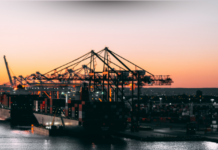The International Monetary Fund (IMF) has been a part of our national discourse since a very long time and it has enveloped all previous governments including the PML-N and PPP administration in 2013 and 2008 respectively.
Pakistan’s economy has been growing and sinking, but it has kept afloat by clinching frequent bailouts from the IMF or by receiving foreign assistance from friendly countries to boost ailing foreign exchange reserves.
Many critics have called out the government for its indecisiveness and failure to clarify its stance regarding the IMF, but recent developments and reports indicate towards clinching a bailout by the end of this financial year which ends in June.
Since Pakistan officially approached the International Monetary Fund (IMF) for a bailout request last October, significant developments have taken place on the economic front.
From the conclusion of an IMF’s delegation visit to Islamabad last November, Pakistan has been able to improve its precarious financial position with assistance from Saudi Arabia, United Arab Emirates and a promise of a $2.5 billion loan to be received from China.
Foreign exchange reserves which had plunged to below the critical levels of $7 billion have been able to touch $8.296 billion as of February 8th, according to data released by State Bank of Pakistan on Thursday.
From November till February, three tranches of $1 billion of the promised $3 billion aid by Saudi Arabia has been deposited in the State Bank of Pakistan (SBP) alongside a $1 billion instalment received from the United Arab Emirates at end of January, which has provided the government with some breathing space.
In a meeting held on the sidelines of World Government Summit in Dubai last Sunday between Prime Minister Imran Khan and IMF’s Managing Director Christine Lagarde was termed as constructive. Ms Lagarde reaffirmed IMF’s readiness to support Pakistan but reiterated decisive policies and a strong package of economic reforms need to be undertaken to shore up the resilience of its economy.
PM Khan welcomed the IMF’s support for Pakistan and reiterated his governments’ commitment to undertaking structural and governance reforms and strengthening social protection in the country. Both the sides expressed willingness to work together on policy priorities and reforms focused at decreasing imbalances and laying the foundations of a job-creating growth path in Pakistan.
Furthermore, it was stated that in this regard deliberations between Pakistani authorities and IMF staff will continue to finalize an agreement on the contours of a program.
Profit reached out to analysts to know their views about the recent developments on the IMF front and this is what they had to share.
Is borrowing from friendly countries a sustainable solution to plug the external financing gap?
Senior advisor Tundra Fonder A.A.H Soomro believes this is a stop-gap arrangement to reduce the magnitude of prospective IMF bailouts and thereby, reduce the strings attached that may have forced excessive devaluation, steep monetary tightening, cuts in development and defence expenditures.
For a sustainable trajectory, he recommended the government to raise exports to 11-12% of GDP by the end of their term with a keen focus on value addition.
“Similarly, FDI should only be encouraged that provide a net FX surplus (curtail imports/increase exports net of profit repatriations),” added Mr Soomro.
However, Institute of International Finance (IIF) senior research analyst Boban Markovic said, “Recently announced investments from Saudi Arabia present a positive development given that FDI in the first half of fiscal 2018/19 is much lower compared to the same period in the previous year. Foreign direct investment is a more sustainable way to promote economic growth, but it will take a few years to collect the full benefits of these investments.
A sustainable solution to Pakistan’s problems lies in the structural reforms. Loans simply serve to bridge the gap until the effects of the reforms take effects. The problem occurs if the country takes loans but fails to reform.”
Faizan Kamran, investment analyst at Arif Habib Limited said, “Borrowing from friendly countries to alleviate external account woes is only a stop-gap arrangement and lacks credence in the longer term.
Consistent borrowing by developing economies to shore up its reserves in desperate times is only likely to lead towards a debt trap.
Borrowing from friendly countries should only be seen as a short-term solution to prevent reserves depletion and consequent further depreciation of the currency.”
He explained focus should be on promoting exports and restricting imports alongside making domestic industry more competitive and subsequently expand its export market.
Mr Kamran emphasized that concentrating on import substitution is imperative to narrow import bills and certain imported products such as oil are of a fixed nature, therefore, the government needs to enhance focus on import substitution industries (chemicals, agriculture and steel are potential industries).
“Moreover, Pakistan has historically depended on remittances very extensively as a source of foreign exchange. The global clampdown against money laundering and enforcement of regulations is forcing money inflows through official channels.
The launch of the mobile wallet by SBP to incentivize the flow of remittances through banking channels is also likely to have a positive bearing on remittances inflow,” he added.
Undertaking structural reforms & instilling fiscal discipline
The incumbent government’s stance towards the IMF in its initial months of power was confusing and garnered significant criticism from the opposition and critics alike.
According to Mr Soomro, undertaking structural reforms require political will. “Going after your voters – and their leaders – when proven allegations of corrupt practices are obvious required strong leadership, along with secure electoral numbers.
The early signs from the government are positive and exhibit zero-tolerance. It would be interesting to see if unpopular decisions are further taken to cut-off electricity supplies and theft in their own constituencies,” he said.
“Moreover, the inefficient collusion of work-force within the government entities would seriously need to be tackled once and for all. The government’s focus has been on private-sector-led growth and investments. Thus, cut in the PSDP shouldn’t be a bitter pill to swallow.
IMF, as a creditor, is primarily concerned about getting the odds of payback maximized. Enacting structural reforms, such as improvements in the tax collection system, bureaucracy and ease of doing business requires major political will and the continuity of thereof,“ he added.
In the view of Mr Markovic, “Pakistan is facing large external and fiscal deficits, growing debt, and chronic structural problems. Regardless of the party in power, one cannot run a country hoping that borrowing and foreign support will solve these problems in the long run.
The current administration will have to start fiscal consolidation and push for deep reforms with or without the IMF agreement. However, the IMF program brings expertise, transparency, reform benchmarks, a clear timeline, and financing to relieve economic pressures.”
Mr Kamran believes the government has already undertaken several unpopular measures such as hiking electricity and gas tariffs, whilst the central bank has raised interest rates by 450 bps in the last one year.
“The fact that the current administration did not rush into an IMF program despite pressure to do so, does give an indication that it will be able to negotiate a decent package.
Whatever package that the country receives, the conditions will have to be abided by in any case. As I said the government prior to approaching the IMF has already taken tough measures and even introduced an economic reforms package that broadly focused on reviving domestic industry,” he added.
Will simplifying tax measures, raising revenue collection via direct taxes as opposed to indirect taxation help the FBR in plugging its shortfall?
Mr Soomro was candid in his remarks and said in the short-term, the answer is no. He explained, “Indirect taxes are easier means to achieve the targets. Howsoever unfair, penalizing-the-honest and purchasing power reducing it may be. In the long run, that’s surely the answer.”
“Mind you, we have a major black and undocumented economy. If you factor the under-stated GDP, our direct tax collection as a % of GDP is miserably low.
If the country must grow, the tax-paying culture needs to be installed and the government has to prove that tax-payers money shall land not in the pockets of yes-sayers but channelled for real human capital development,” he added.
In the opinion of Mr Markovic, the current government seems determined to preserve robust economic growth and shape the other policies around that goal.
He highlighted the major challenge for the government is to preserve strong growth and concurrently pursue reforms and fiscal consolidation.
The IIF senior research analyst explained, “One of the key problems will be removing arrears from the power sector. Increasing electricity prices is an easy solution on the paper, but not in practice as these policies affect the welfare of low-income citizens. Any new policy will have to take a holistic approach in order to avoid negative consequences.”
He shared that the existing tax system is heavily skewed toward indirect taxation and a direct tax can certainly improve tax collection in some instances.
While talking about tax policy, Mr Markovic explained that it was largely contingent on implementation and systems of checks and balances.
“Right now, we can see very large inefficiencies in tax collection. For example, the number of active corporate income tax filers is around one percent of the number of commercial and industrial electricity users.
Similarly, the number of entities that are registered for the general sales tax (GST) is around 180 thousand out of about 1.4 million retailers. The message is that tax compliance must be improved and tax base broadened. This cannot be achieved with a single policy change, but by a systemic approach,” he added.
According to Mr Kamran, the government has preferred direct taxation to meet revenue shortfall as opposed to resorting to increasing indirect taxes because direct taxes tend to be more progressive in nature, therefore, the burden on the lower income strata of the population is lesser.
“Meeting the revenue shortfall is more contingent on the government’s ability to broaden the tax net and increase the number of filers. Harsh measures will have to be taken to narrow the black economy and another amnesty scheme cannot be ruled out,” he added.
Also, AHL’s investment analyst stated dependence on direct taxation to meet the revenue shortfall will crucially require an increase in tax filers.
“The government has taken various steps to incentivize the public to file their taxes such as imposing a ban on purchasing property for non-filers above Rs5 million and ban on non-filers from purchasing vehicles above 1300cc,” he concluded.






















Pakistan, since it is built on INTOLERANT, TOTALITARIAN EVIL ideology of ISLAM, is an inherently UNVIABLE State.
In 1971, the first proff of this was obtained when BANGLADESH desired to Separate from Evil PUNJAB and MORE IMPORTANTLY, Declared as a SECULAR Republic, abandoning INTOLERANT and RADICAL ISLAM at the STATE LEVEL once and for all !!
This process of disintegration of (Left Over) Pakistan Continues wherein BALOCHISTAN, PAKHTOONISTAN and SINDH seek to See themselves as Independent Sovereign Nations having NO RELATION with arrogant PUNJAB !!
Comments are closed.